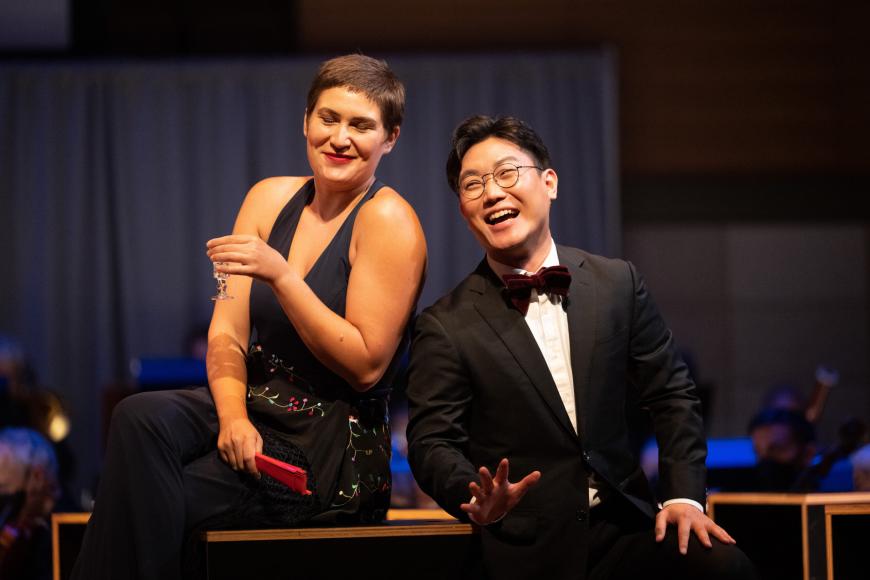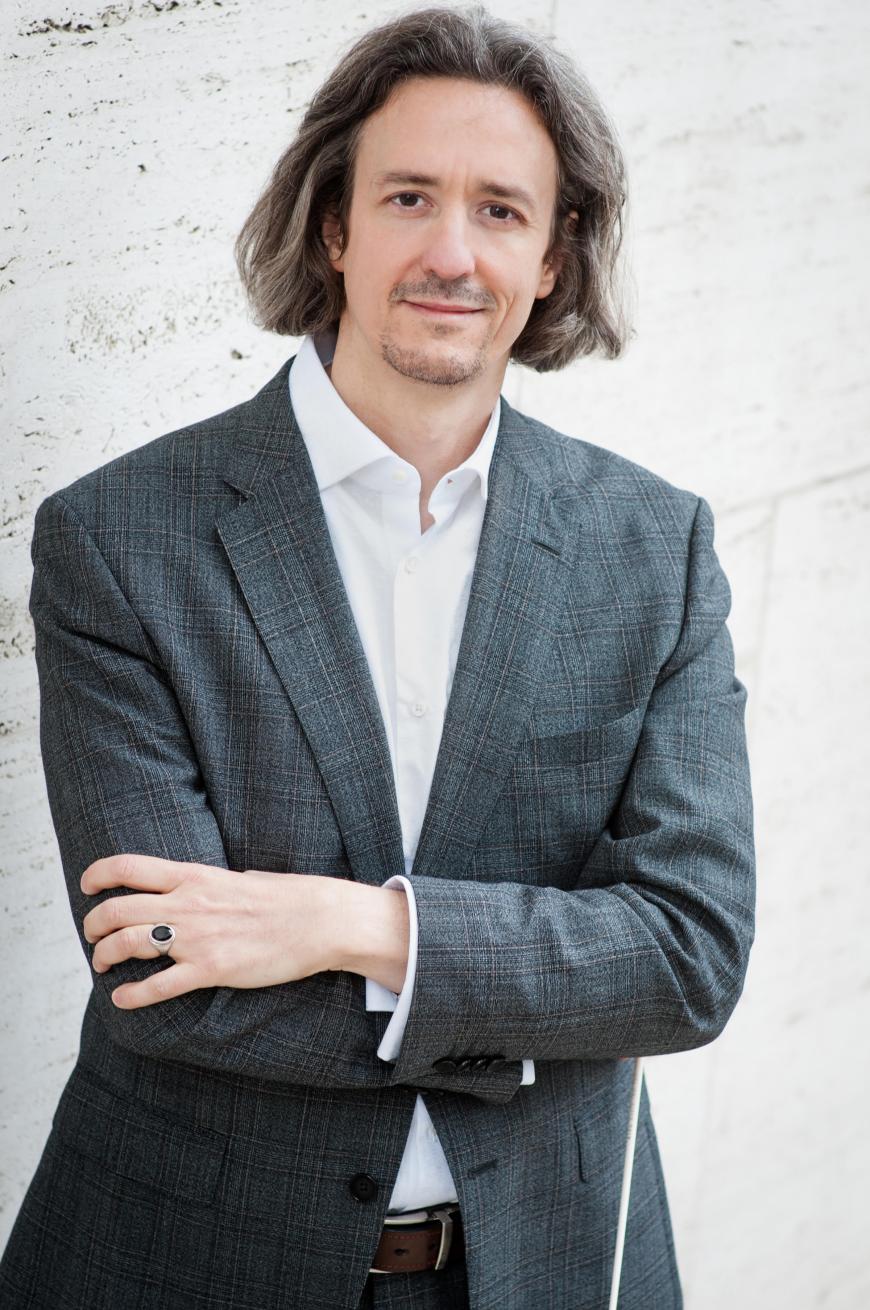
This year’s class of Merolini — participants in the Merola Opera Program for young professionals — have been set a wide range of performance challenges. Under San Francisco Opera Center Artistic Director Carrie-Ann Matheson, the singers and accompanists first worked on the standards of the Great American Songbook, in a recital curated by Grammy Award-winning pianist Craig Terry (performed last weekend).
And for the upcoming Schwabacher Summer Concert (July 14 and 16), they’re tackling masterpieces of the Spanish opera repertory, guided by Opera Hispánica Artistic Director Jorge Parodi and a familiar face, stage director Jose Maria Condemi. “I’m a good friend of Carrie-Ann’s, and my partner, [pianist and coach] Howard Watkins, was a classmate of hers at the Metropolitan Opera House, so I’ve known Carrie-Ann for the longest time,” Parodi said, explaining how he got involved.
Condemi, now the Carol Franc Buck Endowed Chair in the Opera and Musical Theatre program at the San Francisco Conservatory of Music, has directed many shows for SF Opera, Opera San José, and Festival Opera, in addition to having a long list of credits across the United States. Condemi, originally from Argentina, regularly helms Spanish-language operas.

Instead of short scenes and numbers from various operas, Parodi and Condemi decided to work on longer sections of a few opera, so that the singers and audiences will get a sense of the dramatic impact of each work and the characters in it. “We thought we should include [Manuel] de Falla because de Falla is perhaps the most iconic of all Hispanic composers, and La vida breve is probably the most-performed opera in Spanish and has been in the repertoire for the longest.” The full opening scene of Vida breve opens the concert, followed by the entire second act of Daniel Catán’s Florencia en el Amazones, still possibly the only magical realist opera in the repertory, inspired by characters from Gabriel García Márquez’s novel Love in the Time of Cholera.
Parodi is, obviously, a promoter of zarzuela, Spain’s own operatic form. He says that, in search of something lighter, to contrast with the serious dramas on the rest of the evening, he and Condemi turned to Amadeo Vives’s comic masterpiece Doña Francisquita (1923). “It has wonderful ensembles, so it has a fantastic quintet that is sparkly and active and fun. There’s great text setting that matches the character’s intentions, and with a clear dramatic content,” Parodi said.
The exciting and innovative Ainadamar (music by Osvaldo Golijov, libretto by David Henry Hwang) anchors the program. Golijov’s wide stylistic reach requires special handling, but its dramatic payoff is intense.
The conductor has boundless enthusiasm for this repertoire, making him a perfect fit for the young artists of Merola, and he certainly has the experience. “I’ve done María [de Buenos Aires, by Astor Piazzolla] five times. I’ve done Frida [by Robert Xavier Rodríguez] with Atlanta Opera, and I was going to do it with El Paso, until they changed the dates.” After Opera Hispánica “went dormant” during the pandemic, Parodi revived it (with the help of some dedicated board members) and presented a season this past year. He conceives of it as a national organization, which will be doing work at Opera in Williamsburg, where Parodi is music director, and also in the missions of San Antonio, in addition to its second (post-revival) New York season next year.
Of his singers in this production, Parodi reports that they’re taking to the new repertoire like fish to water. “They are loving it. Some of them have Hispanic heritage, but most of them don’t. Spanish is like Italian, and so the transition from Italian to Spanish is very smooth. When the piece is great and the theater work is great and the music is high quality, you just love it, whatever it is.”




